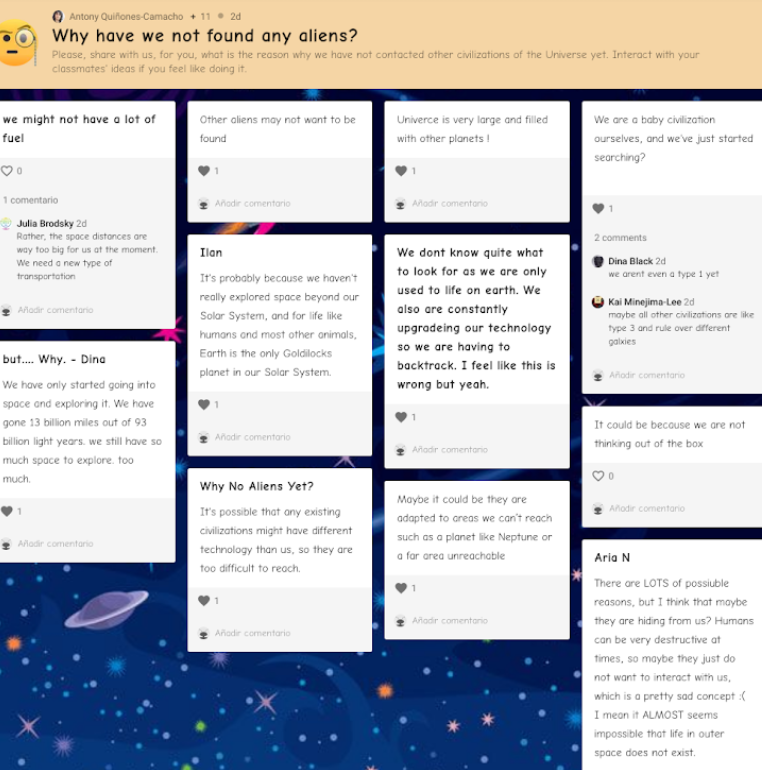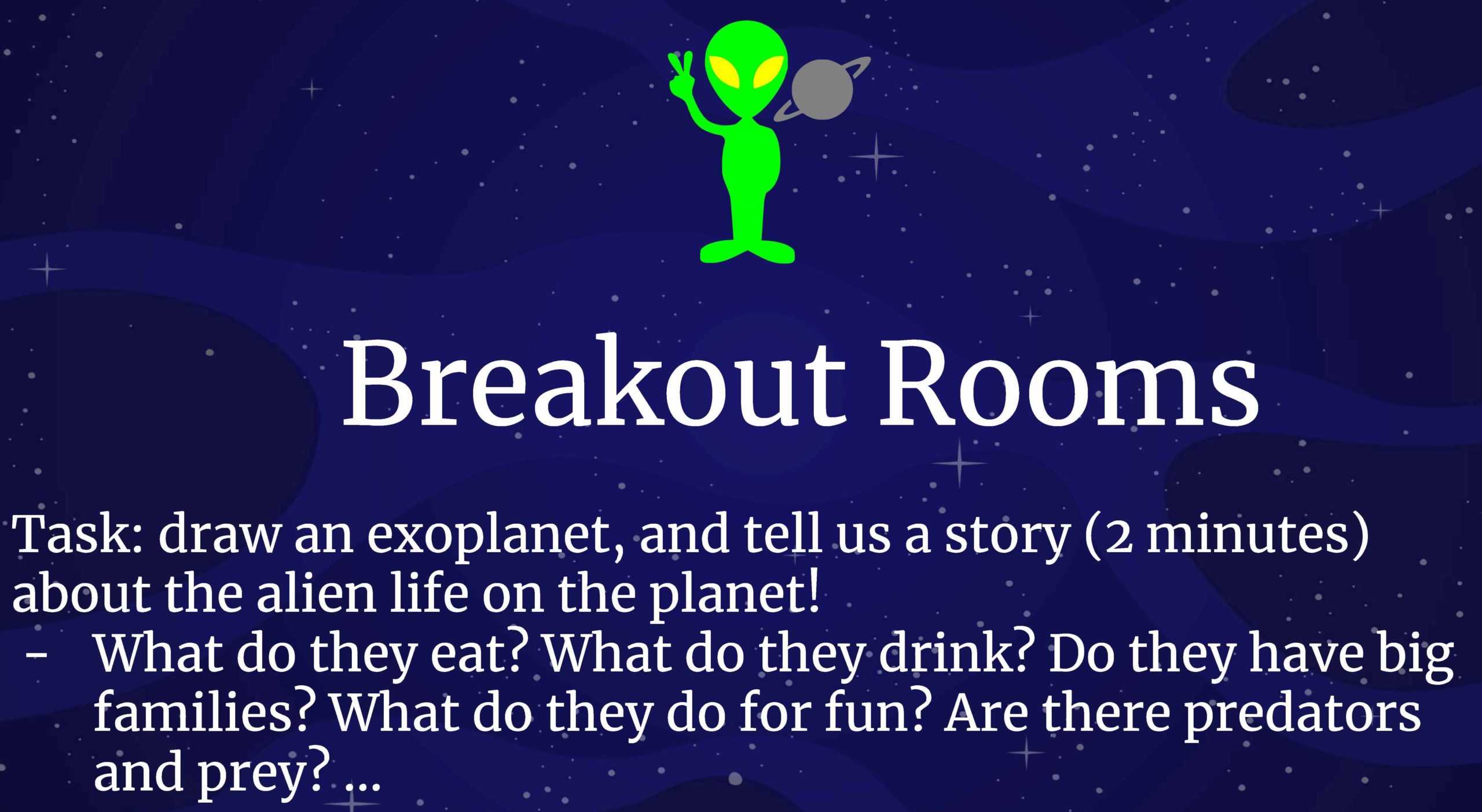2 August 2021
Astrobiology Studies for Kids (ASK)
Posted by Shane Hanlon
By Julia Brodsky
This summer, something beautiful and unique took place in the STEM education world. Run by Blue Marble Space Institute of Science (BMSIS), an online Astrobiology Studies for Kids (ASK) program invited undergraduate students from all over the world to discuss astrobiology with dozens of pre-teens. The topics ranged from exoplanets, planetary geology, and ocean worlds to space fungi, astrovirology, and cyborgs. The instructors (undergraduate students) have turned professional reports on the cutting-edge science featured in science journals into easily understandable, colorful slides with encouraging drawings and cartoons, hands-on activities, computer simulations, and Padlet discussions.
The children were eager to withstand 2-4 hours of astrobiology per day. Due to the time zone differences, some of them had to wake up at 5 am while others stayed up till midnight. Yet their natural curiosity helped them persevere. “Astrobiology is way more exciting than sleep” – stated one of the kids. It was their opportunity to ask probing questions of aspiring scientists, ranging from “Can multiverses be nested one inside the other?” to “ Do we plan to use brain enhancements and prosthetics in space?”, “How do we search for AI civilizations?”, “How does silicon replace carbon in organic molecules?”, “Could we learn the language of viruses and use it to fight infections?”, and “Should we define a human being as a creature that is willing and able to change itself?”
It is hard to say who gained more from the discussions. Children’s profound questions motivated instructors to research new areas of science and make connections between various fields of study. “It is my first time teaching kids,” said one of the ASK instructors, “and I never thought they are so intelligent and can ask such deep, provocative questions. They helped deepen my own understanding of the subject.” “If only I had this opportunity as a kid,” said another. “I am so happy to be able to help the next generation!”
The ASK program, which also introduces future scientists and science educators to the best STEM education practices and resources, is offered by BMSIS as a part of the Young Scientist Program (YSP) summer initiative. The initiative provides research opportunities and professional development to young scientists all over the globe. The BMSIS YSP operates two branches: one with on-site participation at NASA Ames Research Center, and the other enabling online participation from anywhere in the world.
-Julia Brodsky is Affiliate Researcher and STEM Education Group Lead BMSIS; Founder and Lead Instructor, Art of Inquiry LLC.




 The Plainspoken Scientist is the science communication blog of AGU’s Sharing Science program. With this blog, we wish to showcase creative and effective science communication via multiple mediums and modes.
The Plainspoken Scientist is the science communication blog of AGU’s Sharing Science program. With this blog, we wish to showcase creative and effective science communication via multiple mediums and modes.